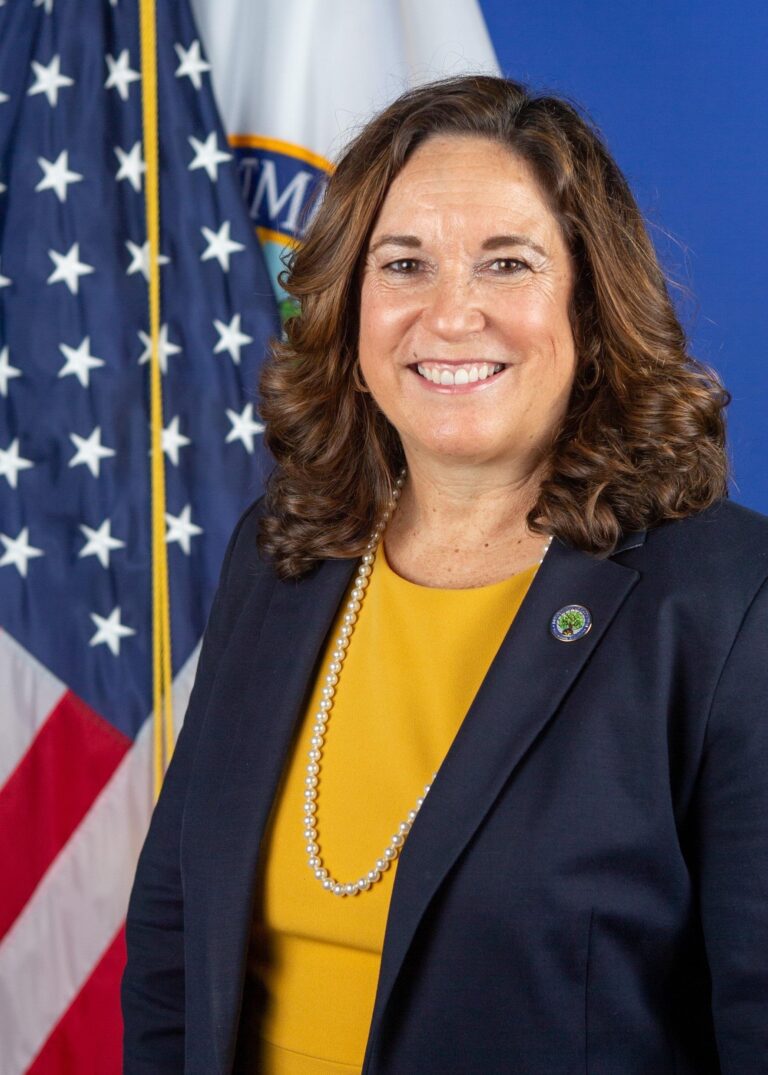Senate Confirms Cindy Marten as Deputy Secretary of Education: A New Chapter for U.S. Education
From San Diego to Washington: Cindy MartenŌĆÖs Ascension to Federal Education Leadership
The U.S. Senate has officially approved Cindy Marten, formerly the Superintendent of San Diego Unified School District, as the Deputy Secretary of Education. This appointment marks a pivotal career advancement for Marten and signals a strategic move by the Biden administration to embed experienced, equity-driven leaders within the federal education system. Known for her unwavering dedication to student success and educational fairness, Marten is poised to influence national education policies with insights drawn from her extensive local leadership.
During her impactful tenure in San Diego, Marten spearheaded initiatives that enhanced literacy rates, expanded mental health support, and forged strong partnerships with community stakeholders to prepare students for future careers. Her leadership contributed to measurable improvements in graduation rates and teacher development, setting a precedent for her upcoming federal role.
| Focus Area | Outcomes Achieved |
|---|---|
| Student Performance | Graduation rates rose by 7% |
| Teacher Development | Expanded access to professional growth programs |
| Community Collaboration | Enhanced engagement with families and local organizations |
MartenŌĆÖs transition to the Department of Education reflects a broader federal commitment to scaling successful district-level strategies nationwide, with a focus on equity and student-centered reforms.
Transforming National Education Policy: The Impact of MartenŌĆÖs Leadership
Cindy MartenŌĆÖs new role is expected to bring a fresh emphasis on equity, innovation, and inclusivity to federal education policies. Drawing from her hands-on experience managing one of the nationŌĆÖs largest school districts, Marten is likely to champion expanded early childhood education access, bolster support for underfunded schools, and integrate social-emotional learning into curricula across the country.
Key policy shifts anticipated under her leadership include:
- Strengthening teacher retention: Prioritizing mentorship and professional development to reduce turnover.
- Bridging the digital divide: Promoting equitable access to technology and digital resources.
- Inclusive education policies: Advocating for diverse learners, including students with disabilities and English language learners.
Below is a comparison illustrating the expected evolution in federal education priorities with MartenŌĆÖs influence:
| Policy Domain | Previous Federal Approach | Projected Direction |
|---|---|---|
| Early Childhood Education | Limited federal investment | Expanded funding and accessibility initiatives |
| Teacher Retention | Focus on standardized evaluations | Comprehensive support and mentorship programs |
| Technology Access | Unequal distribution of resources | Targeted efforts to ensure equity in digital tools |
Evaluating MartenŌĆÖs Legacy: Lessons for National Education Reform
Throughout her leadership at San Diego Unified, Cindy Marten demonstrated a commitment to closing achievement gaps and fostering inclusive learning environments. Her initiatives during the COVID-19 pandemic, such as expanding remote learning infrastructure and prioritizing student mental health, have been particularly noteworthy. These efforts contributed to significant improvements in key educational metrics, underscoring her data-driven and compassionate approach.
- Introduced district-wide mental health programs that lowered absenteeism and boosted student engagement.
- Enhanced technology access, ensuring 95% of students had reliable internet connectivity by 2021.
- Developed culturally responsive curricula to promote inclusivity and critical thinking skills.
| Metric | 2013 (Pre-Marten) | 2021 (Post-Marten) |
|---|---|---|
| Graduation Rate | 75% | 85% |
| Chronic Absenteeism | 25% | 15% |
| Student Internet Access | 60% | 95% |
MartenŌĆÖs proven success in addressing educational disparities and promoting mental health services positions her to influence federal policies that support safe, equitable, and technologically advanced learning environments nationwide.
Guidance for School Districts Adapting to Federal Leadership Changes
As Cindy Marten assumes her federal role, local school districts are encouraged to proactively align with emerging national priorities. Open communication with educators, families, and staff is vital to foster trust and facilitate smooth transitions. Regular community forums and feedback mechanisms can help districts stay attuned to stakeholder needs and expectations.
Districts should also embrace data-informed strategies to synchronize local programs with federal initiatives and funding opportunities. The following recommendations can support effective adaptation:
- Create detailed transition plans outlining immediate steps and long-term objectives.
- Invest in targeted professional development focusing on equity, literacy, and student wellness.
- Forge partnerships with community organizations and advocacy groups to expand support networks.
- Stay vigilant on policy updates to swiftly respond to legislative changes.
| Focus Area | Recommended Strategy | Expected Benefit |
|---|---|---|
| Equity Programs | Allocate funds to underserved populations | Enhanced resource availability |
| Teacher Development | Conduct workshops on innovative teaching methods | Improved student engagement |
| Student Mental Health | Expand access to counseling and support services | Better overall student well-being |
Looking Ahead: The Future of American Education Under Cindy MartenŌĆÖs Leadership
With Cindy MartenŌĆÖs confirmation as Deputy Secretary of Education, the federal government gains a leader deeply rooted in practical, equity-focused education reform. Her extensive background in managing a large, diverse school district equips her to address national challenges with grounded, student-centered solutions. As she embarks on this new chapter, educators, policymakers, and communities nationwide will be closely observing how her vision and expertise shape the trajectory of U.S. education.




